Ready to learn more?
Get all the details straight to your inbox!
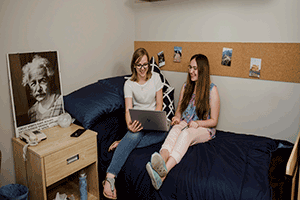
Our student residence, The Student Village at Luther College, welcomes residents from ALL post-secondary institutions in Regina. Rooms come with a meal plan, free laundry, free wi-fi, and a great sense of community.

Wondering where to live? Our student residence, The Student Village at Luther College, is considered a great choice for first-year student accommodation. Individual private rooms mean you can stick to your own schedule and you never have to deal with roommate hassles.
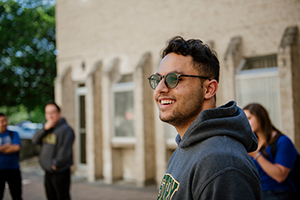
Every degree program at Luther College offers a study abroad option and an optional experiential learning component where you gain real world experience and get paid while going to school!
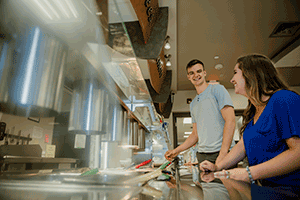
Eating better means studying better. The Luther Cafeteria offers fresh, healthy, nutritious meals seven days a week with a self-serve “all-you-care-to-eat” concept students prefer.
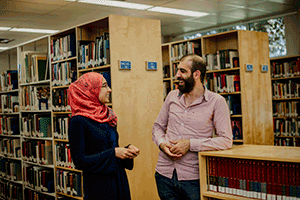
The Luther Library has over 24,000 items in its collection, 5,000 books checked out per year, and 7,000 students who come through its door per month.
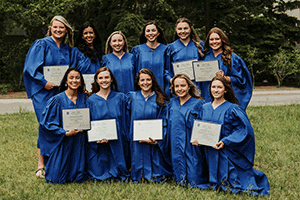
Luther College students are U of R students and receive all the same benefits. Upon graduation you will receive a U of R degree.
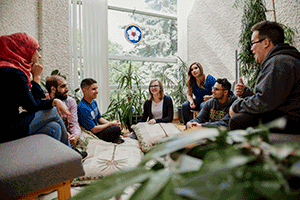
Luther College appeals to students who want to study in a safe, nurturing, and inclusive environment. We welcome students of all faiths, ethnicities, backgrounds, religions, genders, and sexual orientations.
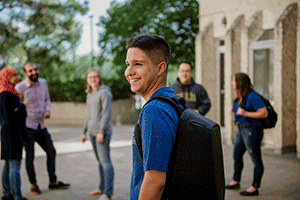
To enrol as a Luther College student, simply fill out the University of Regina application form and select Luther as your campus of choice.
Get all the details straight to your inbox!
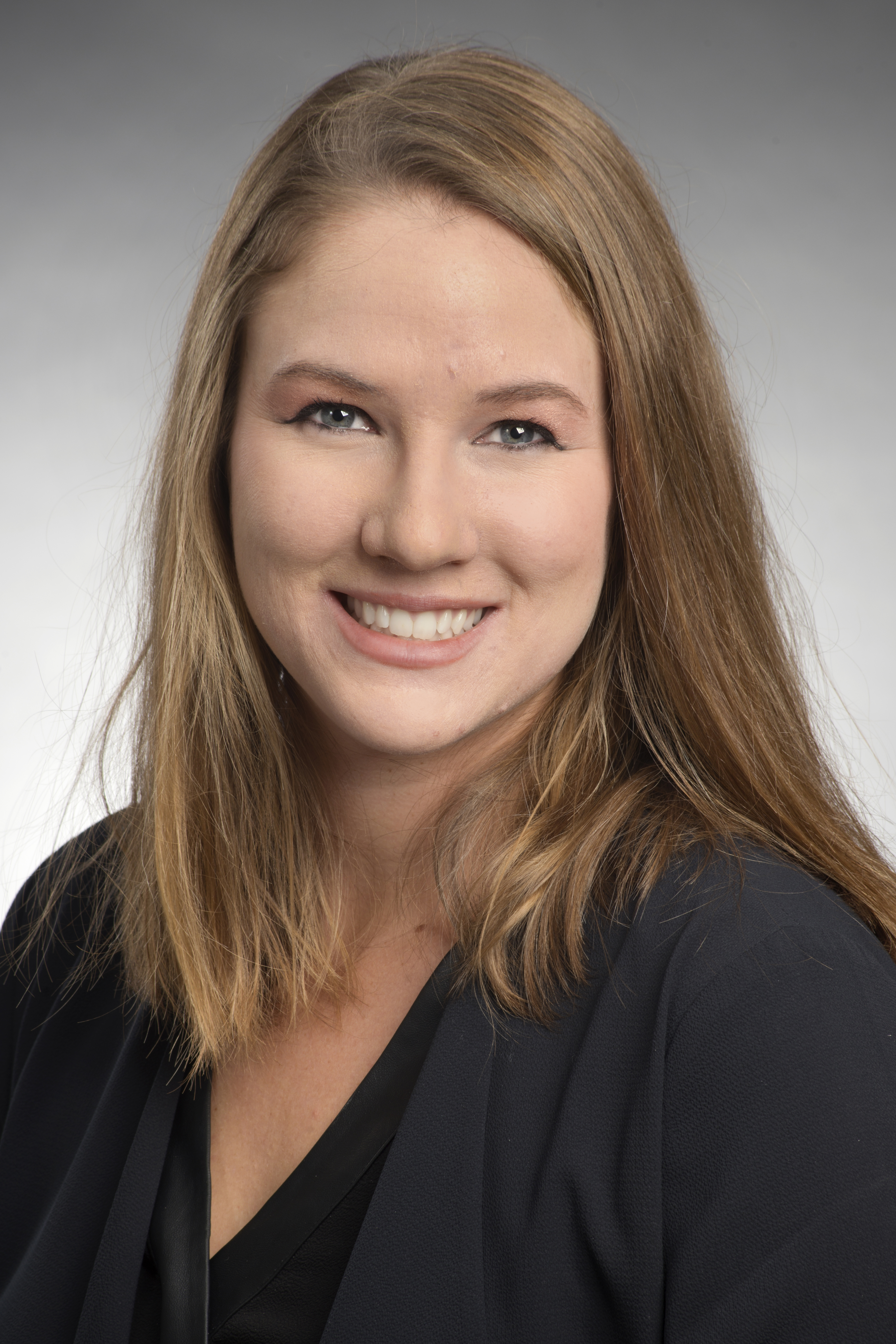
Dr. Bruer is an assistant professor of psychology and teaches a variety of psychology courses at Luther College. Trained in both criminology and forensic psychology, Dr. Bruer is most passionate about teaching psychology as it applies to the legal system. Dr. Bruer is the director of the Child Evidence Lab and collaborates with many undergraduate and graduate research students. Her research focuses on children’s participation in the justice system and the factors affecting child witness testimony, including memory and truthfulness. Dr. Bruer is also the Director of the Canadian Child Interviewing Research Team, which is a national group of scholars dedicated to learning about how to support children in reporting their experiences within the legal system as well as supporting legal professionals on how to talk to children about their experiences using empirically based best practices.
PSYC 101/102
PSYC 220
PSYC 321
Baker, M.*, Berens, K. A. *, Williams, S., Bruer, K. C., Evans, A. D., Price, H. L. (accepted Oct. 2021). The Impact of COVID-19 on Social Work Practice in Canada: A Comparison of Urban and Rural Contexts. Accepted to the Journal of Comparative Social Work.
Dykstra, V.*, Harvey, M. B.*, Bruer, K. C., Price, H. L, & Evans, A. D (2021). To disclose or not to disclose? The influence of consistency and disclosure recipient on perceptions of children’s credibility. Accepted to the Journal of Interpersonal Violence. https://doi.org/10.1177/08862605211025021
Harvey, M. B.*, Bruer, K. C., & Price, H. L. (2021). Perceptions of Familiar and Unfamiliar Ear- and Eye-Witnesses. Accepted to Psychiatry, Psychology and Law. https://doi.org/10.1080/13218719.2021.1910588
Bruer, K. C.,Furlong, M. A. R*., Williams, S., & Evans, A. D. (2021). Adults’ sensitivity to the age-appropriateness of lawyer’s questioning of children in a physical abuse case. Canadian Journal of Behavioural Science / Revue canadienne des sciences du comportement, 53(4), 469–479. https://doi.org/10.1037/cbs0000266
Evans, A. D., Dykstra, V*., Bruer, K. C. & Price, H. L. (2021). Lying to Conceal a Group Transgression in Middle- to Late- Childhood. Merrill-Palmer Quarterly, 67(1), 75-93. https://doi.org/10.13110/merrpalmquar1982.67.1.0075
Price, H. L., Bruer, K. C., Adkins, M.* (2020). Using an interactive simultaneous lineup procedure can identify looking behaviour that predicts accuracy in children and adult eyewitnesses. Law and Human Behavior, 44(3), 223-237. https://doi.org/10.1037/lhb0000364
Bruer, K. C., Zanette, S., Ding, X., Lyon, T. D., & Lee, K. (2020). Identifying Liars Through Automatic Decoding of Children's Facial Expressions. Child Development; 91(4), e995-e1011.doi: 10.1111/cdev.13336; USC CLASS Research Paper No. CLASS19-30; USC Law Legal Studies Paper No. 19-30. Available at SSRN: https://ssrn.com/abstract=3449383
Price, H. L., Evans, A. D., & Bruer, K. C. (2019). Transmission of children’s disclosures of a transgression from peers to adults. Applied Developmental Science. https://doi.org/10.1080/10888691.2019.1586544
Evans, A. D., O’Connor, A.M.*, Bruer, K. C., & Price, H. L. (2019). Children who disclose a minor transgression often neglect disclosing secrecy and coaching. Journal of Applied Development Psychology, 62(2), 199-204. https://doi.org/10.1016/j.appdev.2019.03.002
Bruer, K. C., Price, H. L., Harvey, M*., & Adams, A*. (2017). Judicial discussion of eyewitness identification evidence. Canadian Journal of Behavioural Science, 49(4), 209-220. https://doi.org/10.1037/cbs0000084
Bruer, K. C., Fitzgerald, R. J., Price, H. L., & Sauer, J. D. (2017). How sure are you that this is the man you saw? Using confidence judgments to identify a target with child eyewitnesses. Law and Human Behavior, 41(6), 541-555. https://doi.org/10.1037/lhb0000260
Bruer, K. C. & Price, H. L. (2017). A repeated forced-choice lineup procedure provides suspect bias information with no cost to accuracy for older children and adults. Applied Cognitive Psychology, 31(5), 448-466. https://doi.org/10.1002/acp.3342
Bruer, K. C, Price, H. L. & Dahl, L. C. (2017). When an alibi is not enough: An exploration of evidence needed for mock investigators to lay charges in a robbery case. Journal of Police and Criminal Psychology, 32(2), 94-104. https://doi.org/10.1007/s11896-016-9209-6